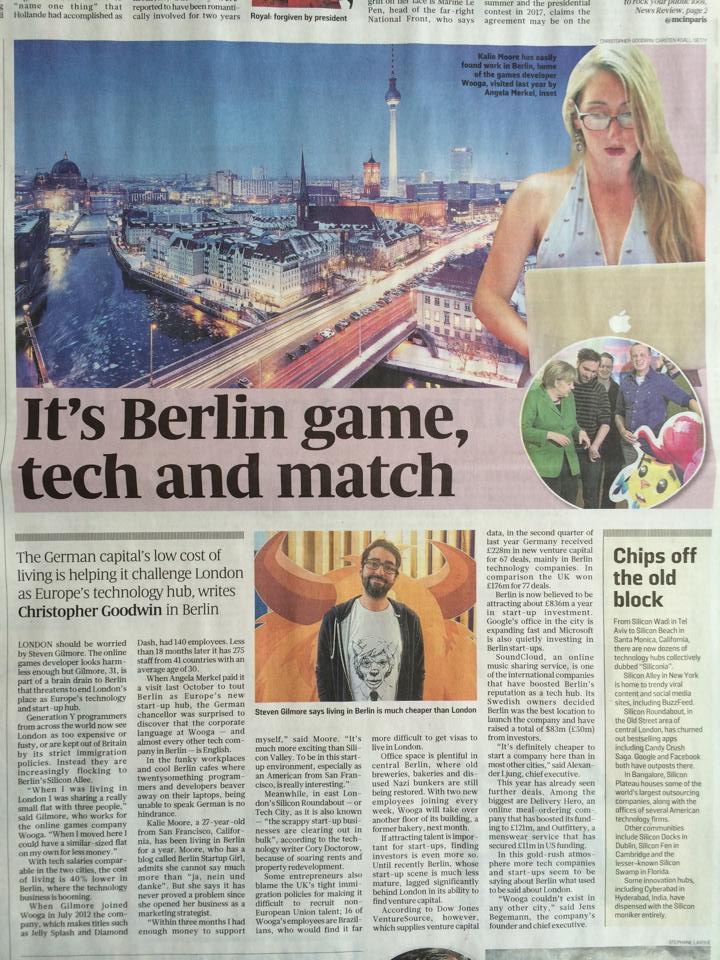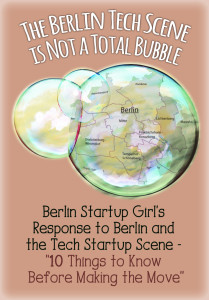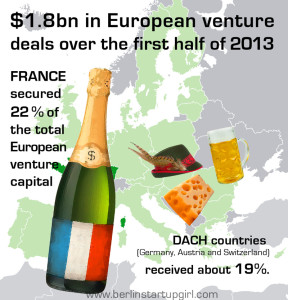For a PDF of the article click here: It’s Berlin game, tech and match | The Sunday Times
For the record, I was totally misquoted about the language part. I said that you don’t need German to work in the startup scene, but now that I had committed to Berlin, and my visa has been secured, I think it is important to learn the language. [Read more…]






Recent Comments